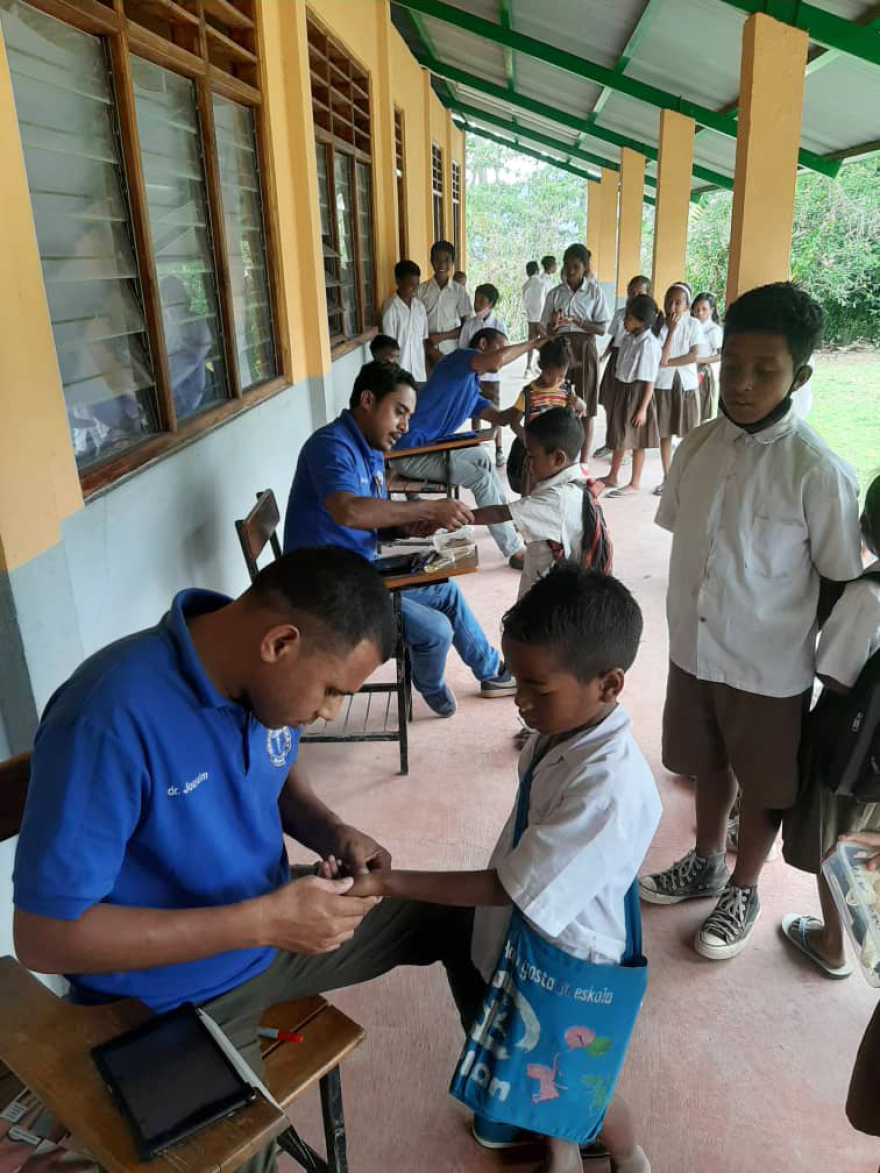A new study from the Kirby Institute published today in Lancet Global Health has found that administering drugs for intestinal worm infections, scabies and impetigo to an entire population is an effective way to control these neglected tropical diseases (NTDs).
NTDs are a diverse group of a disease that disproportionally affect impoverished communities living in low-and-middle income countries. They represent among the most common parasitic human diseases worldwide, collectively infecting over one billion people per year.
The research, co-led by the Kirby Institute and Menzies School of Health Research, with the participation of the Timor-Leste Ministry of Health, was conducted in Timor-Leste, a country where chronic malnutrition and infectious diseases such as tuberculosis, pneumonia, dengue, and NTDs are major childhood health problems.
What is mass drug administration?
Mass drug administration – or MDA - is a strategy for controlling NTDs. It involves administering safe and effective drugs to entire communities to control a disease at the population-level, regardless of whether individuals are currently showing symptoms of the disease. It has been endorsed by the World Health Organisation regimens to control a range of NTDs.
“Typically, governments would implement MDA using one drug to control one disease at a time. This can be a very costly and inefficient model of controlling diseases, especially in the context of low- and middle-income countries where there are significant resource constraints and where there are multiple diseases that are prevalent,” says Brandon Le first author on the paper. “By contrast, Timor-Leste implemented an “integrated” MDA program involves the large-scale administration of multiple drugs to control multiple diseases simultaneously."
Children undergoing skin checks in Timor-Leste
The case for integrated mass drug administration
In May 2019, the Timor-Leste Ministry of Health rolled out a national program administering a single dose, triple-drug administration of ivermectin, diethylcarbamazine citrate and albendazole. The program aimed to eliminate lymphatic filariasis (a worm that lives in the lymph system) as a public health problem and control intestinal worm infections and achieved 76% national coverage.
“While the program was designed to eliminate morbidity with these specific types of worms, we know that these drugs are also very effective against scabies, and suspected the program would lead to reductions in this NTD and also on impetigo (a secondary skin infection often associated with scabies). To demonstrate evidence for integrated MDA, we designed a before and after study to evaluate the impact of the national MDA program on these multiple NTDs,” said Associate Professor Josh Francis from Menzies School of Health Research and co-senior author on the paper.
The researchers enrolled over 1000 children in the study, and conducted clinical skin assessments for scabies and impetigo, and molecular diagnostics to diagnose intestinal worm infections before and after the program.
18 months following the MDA, scabies prevalence had reduced by 62%, impetigo by 86% and whipworm infections by 84%.
“These reductions are impressive, and provide strong evidence supporting the adoption of combination MDA to improve the integrated control of multiple NTDs, specifically using single doses of albendazole and ivermectin for scabies, impetigo, and intestinal worm infections,” says Dr Merita Monteiro, Director of the National Public Health Institute, from the Timor-Leste Ministry of Health.
Associate Professor Susana Vaz Nery from the Kirby Institute said that the scabies reductions were particularly important, because this was achieved using only one dose of ivermectin. “Ivermectin MDA for scabies is usually administered in two doses, however a reduced dose has significant benefits in terms of cost and logistics. This is first time we’ve been able to demonstrate the effectiveness of a one dose regimen outside of a trial context and could pave the way for increased access to these drugs globally,” she said.
Timor-Leste recently achieved the WHO elimination targets in relation to lymphatic filariasis. The researchers are now actively working with the Ministry of Health to discuss opportunities for additional rounds of MDA for improving the control of scabies and intestinal worms.
“This evaluation has shown that we can effectively control these three NTDs at the same time. This helps to provide support for these programs to be rolled out in other countries facing similar health challenges,” says A/Prof Vaz Nery.

